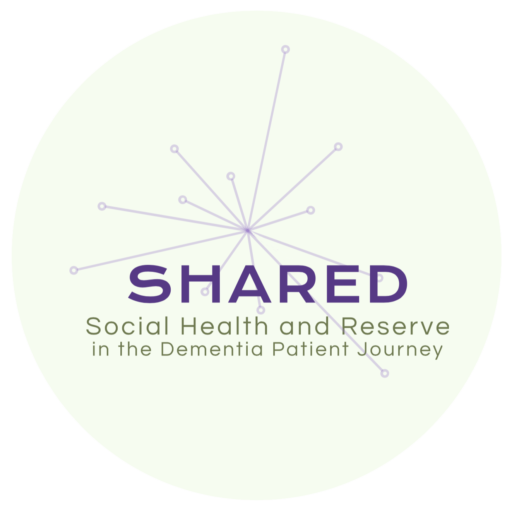Social Health in the
clinical phase of dementia
Background
Fifty million people worldwide have dementia (WHO, 2019). The world’s ageing population presents unprecedented challenges to us. As we age and our memory fades, we may lose confidence and become isolated from our friends and family. Lifestyle may hold the key to modifying dementia risk. The brain has a ‘use it or lose it’ rule and social interactions may help keep our brain healthy. This WP examines the bidirectional influences between social health and cognitive health. Specifically, how cognitive impairment and the social environment (social network size and quality, social support, informal and formal care) causally interact to impact on social engagement (social activities, social isolation, loneliness) across the time span of dementia. Many other variables that may affect both social and cognitive health such as education, depression, apathy, premorbid personality and physical illness will also be accounted for.

Aims
We will investigate:
(a) how cognitive health interacts with the social environment to influence social engagement
(b) how changes in social health modulate disease progression and care needs; and
(c) how persons with cognitive decline differ in their abilities to maintain social health.
Tasks
- To examine longitudinal associations between cognition and measures of social health.
- To examine mediating or moderating variables on these associations such as ethno-racial differences, socio-economic class, pre-morbid personality, depressive symptoms, and physical health.
- To compare persons who maintain good social health and those who do not while controlling for the level and type of cognitive (or functional) impairment.
- To uncover novel biomarkers which influence the relationships between social and cognitive health such as inflammatory biomarkers, and brain morphology.






